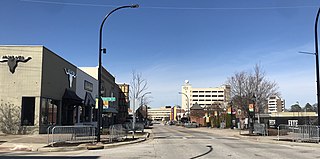
Decatur is the largest city and county seat of Morgan County in the U.S. state of Alabama. Nicknamed "The River City", it is located in northern Alabama on the banks of Wheeler Lake, along the Tennessee River. The population in 2020 was 57,938.
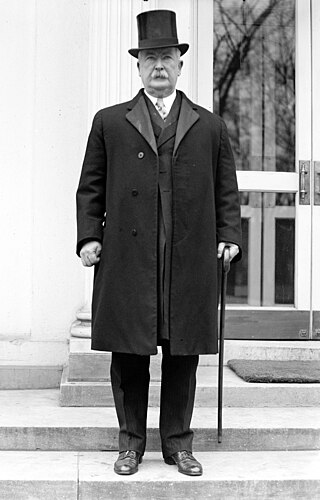
Emmet O'Neal was an American Democratic politician and lawyer who was the 34th Governor of Alabama from 1911 to 1915. He was a reformer in the progressive mold and is best known for securing the commission form of government for the cities of Alabama.

Robert Enoch Withers was an American physician, military officer, newspaperman, politician diplomat, and Freemason. He fought against the United States in the American Civil War. He served as Lieutenant Governor of Virginia and represented Virginia in the United States Senate and served as U.S. Consul in Hong Kong.

The Huntsville-Decatur-Albertville, AL Combined Statistical Area is the most populated sub-region of North Alabama, and is the second largest Combined Statistical Area in the State of Alabama after Birmingham. The Huntsville-Decatur-Albertville CSA had a total of 879,315 people in 2022 and ranks 68th in the country.

LaFayette Lee Patterson was a United States representative from Alabama. He served three terms in the U. S. Congress, from 1928 to 1933.

The Huntsville Hospital Health System, also known as Huntsville Hospital, is a public, not-for-profit hospital organization consisting of several sites and buildings originating in the downtown area of Huntsville, Alabama. The Huntsville Hospital Health System has evolved and now owns or works with several other hospitals in Alabama. It has around 13,000 employees, 2,000 nurses and 650 physicians.

The lieutenant governor of Alabama is the president of the Alabama Senate, elected to serve a four-year term. The office was created in 1868, abolished in 1875, and recreated in 1901. According to the current constitution, should the governor be out of the state for more than 20 days, the lieutenant governor becomes acting governor, and if the governor dies, resigns or is removed from office, the lieutenant governor ascends to the governorship. Earlier constitutions said the powers of the governor devolved upon the successor, rather than them necessarily becoming governor, but the official listing includes these as full governors. The governor and lieutenant governor are not elected on the same ticket.
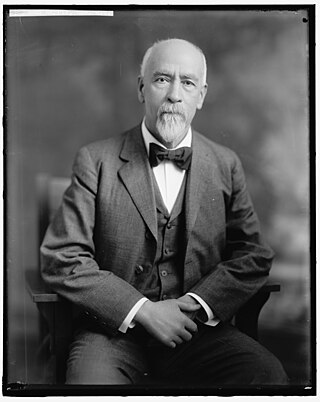
Christopher Columbus Harris was an American lawyer, banker, and Confederate Civil War veteran who represented Alabama's 8th congressional district in the United States House of Representatives from 1914 to 1915.

Albert Sydney Herlong Jr. was an American lawyer and politician from Florida who served ten terms in the United States House of Representatives from 1949 to 1969. He was a member of the Democratic Party.
Carter Manasco was an American politician and attorney. A member of the Democratic Party, Manasco served as U.S. Representative from Alabama from 1941 to 1949. Following his congressional service, Monasco worked for the National Coal Association as its legislative counsel.
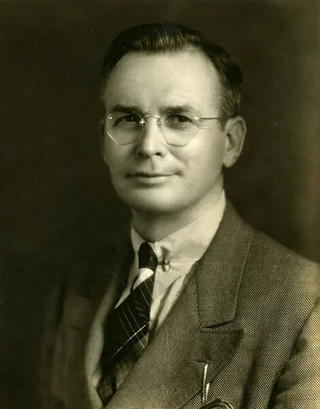
Luther Patrick was a U.S. Representative from Alabama.

Sydney Johnston Bowie was a U.S. Representative from Alabama, nephew of Franklin Welsh Bowdon.

William Henry Denson was a U.S. Representative from Alabama.
Zadoc Lorenzo Weatherford was a U.S. Representative from Alabama for the Democratic Party.
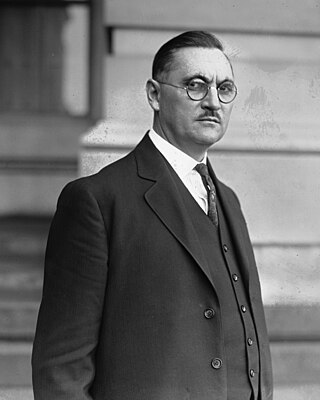
Samuel Billingsley Hill, was a lawyer, mayor, and U.S. congressman from eastern Washington.

Henry Bramlette Gray of Birmingham, Alabama was born in Calhoun County, Georgia. Gray was an American politician who served as the sixth Lieutenant Governor of Alabama from 1907 to 1911.
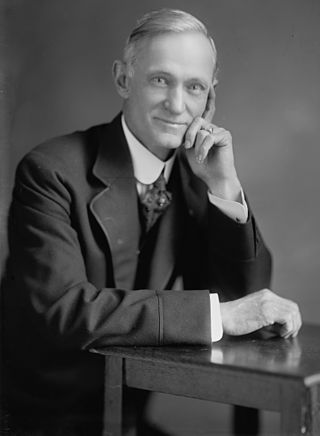
Ezekiel Samuel Candler Jr. was an American politician and lawyer who served in the United States House of Representatives, representing the 1st congressional district of Mississippi for two decades as a Democrat. He subsequently served as the mayor of Corinth, Mississippi from 1933 to 1937.
George Blackmore Guild (1834-1917) was an American Democratic politician. He served as the Mayor of Nashville, Tennessee from 1891 to 1895.
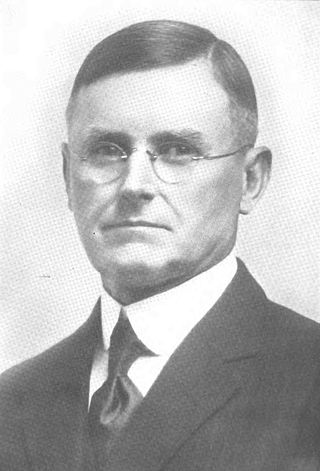
Dyer Findley Talley was an American surgeon who served as president of the Medical Association of the State of Alabama.

Nathaniel Henry Rhodes Dawson was an American lawyer and politician who served as the 3rd U.S. Commissioner of Education. During the American Civil War, he served in the Confederate Army as a colonel.

















